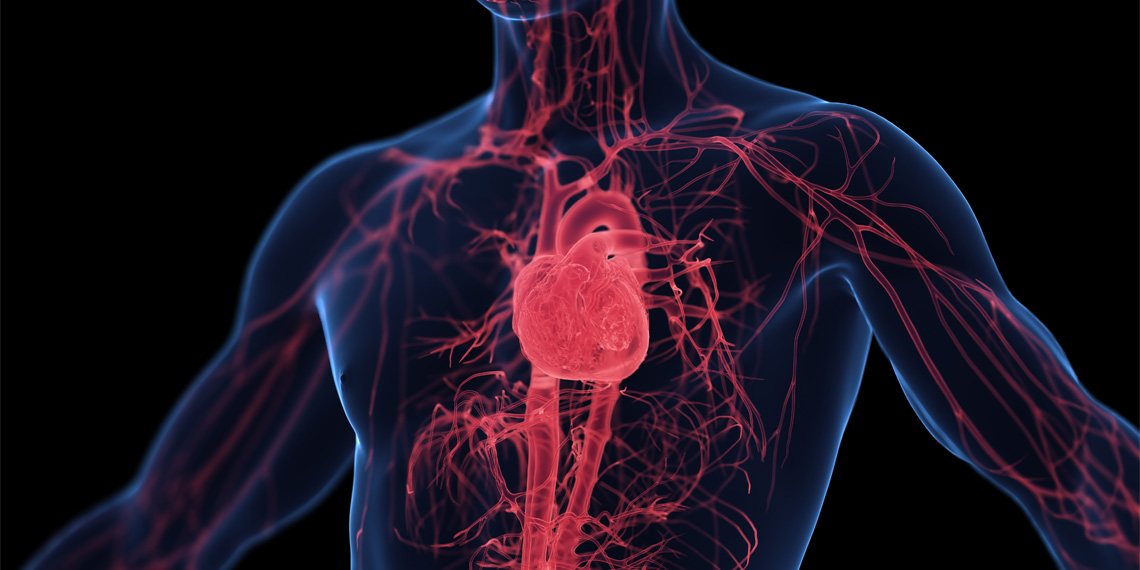Cardiovascular
Extraverts have lower cardiovascular reactivity to acute stress, according to new research
A study of university students found that extraverted individuals tend to have lower cardiovascular reactivity to stress than introverts when they are exposed to a new stressor. However, this effect wasn’t seen when they faced the same stressor a second time. The study was published in the International Journal of Psychophysiology.
Extraversion is a personality trait that reflects an individual’s tendency to be outgoing, social, and energetic. People high in extraversion enjoy interacting with others, seek external stimulation, and often display assertiveness and positive emotions. On the other hand, introverts, who are on the opposite spectrum of extraversion, are quieter, reflective, and often prefer solitude over social interactions.
Previous research has shown many positive health benefits associated with being extraverted. This includes a lower likelihood of depression, anxiety, and even a longer lifespan. Physiologically, studies report that extraverts tend to have lower blood pressure at rest, reduced risk of hypertension as adolescents and reduced risk of acute heart infarction. However, there are also studies that reporting contradicting results.
Study author Adam O’Riordan and his colleagues wanted to examine the influence of extraversion on the reactivity of the cardiovascular system to stress and its habituation to the source of stress. Previous studies have indicated that highly extraverted individuals tend to use more effective coping strategies and thus perceive less stress compared to introverts in equal situations. This might also include the body’s cardiovascular response to stress, but findings in this regard are not consistent.
When under stress, the cardiovascular system undergoes significant changes to prepare the body for immediate action. Heart rate increases, pumping more blood to deliver oxygen and nutrients to muscles and vital organs. Blood vessels constrict, leading to elevated blood pressure, redirecting blood flow to essential areas. The body releases stress hormones like adrenaline and cortisol, which further boost heart rate and blood pressure, while also mobilizing energy stores for quick use. These changes collectively form the “fight or flight” response, optimizing the body to react swiftly in stressful situations. Study authors wanted to test whether the intensity of this response depends on one’s level of extraversion.
The study involved 467 undergraduate students from Baylor University in Texas, with an average age of 19 and a majority (61%) being male. Participants were required to be healthy and were given specific instructions regarding food, drink, and exercise before the study. The stressor in this study was a challenging math task (the PASAT), made even more stressful with loud sounds and the idea of being watched and in competition. This task was done twice with a short break in between.
In this task, an audio recording was played speaking single-digit numbers. Participants’ task was to remember the number they heard, add it to the next number they hear and report on the result. The procession of digits became faster and faster as the task progressed. To make the situation more stressful, the researchers used a loud buzzer that sounded at set intervals. They told participants that it indicates an incorrect answer. To increase stress even further, the researchers told participants that they were being video-recorded, that they should look at themselves in a mirror while answering, and that they were competing with other participants.
Participants also completed assessments of extraversion (the Big Five Inventory) and affect state and self-reported stress (the Stress Reactivity Questionnaire, completed before the stress-inducement tasks, between the two tasks, and after them). The researchers took measurements of participants’ blood pressure (using a standard blood pressure cuff), and heart rate (using a semi-automatic sphygmomanometer) throughout the stress-inducement sessions. They used the heart rate and blood pressure data to calculate systolic and diastolic blood pressure along with arterial pressure.
The results showed that participants, in general, had an increase in blood pressure and heart rate during the tasks. During the sessions, positive emotions decreased and negative emotions increased. More extraverted participants showed a lesser increase in these metrics during the first task and also felt less stressed. However, this difference wasn’t noticeable during the second task.
“The findings indicate that higher levels of extraversion were associated with lower systolic blood pressure, diastolic blood pressure, mean arterial pressure, and heart rate reactivity in response to both the first and second exposure to the PASAT [the stress-inducing mental arithmetic task]. Additionally, extraversion was also significantly associated with lower levels of self-reported stress in response to the initial stress exposure, as well as a smaller reduction in positive affect in response to both exposures to the stressor. However, unexpectedly, no significant associations were observed between extraversion and cardiovascular habituation on repeated exposure to stress,” the study authors concluded.
The study makes an important contribution to the scientific understanding of the relationships between personality and reaction to stress. However, it should be taken into account that all study participants were students i.e., young people. Results on other age and social groups might not be the same. Additionally, stress was induced with a mental arithmetic task, a task that is taxing, but lacks some of the key qualities of serious real-life stressors (such as important consequences).
The study, “Extraversion is associated with lower cardiovascular reactivity to acute psychological stress”, was authored by Adam O’Riordan, Danielle A. Young, Alexandra T. Tyra, and Annie T. Ginty.

